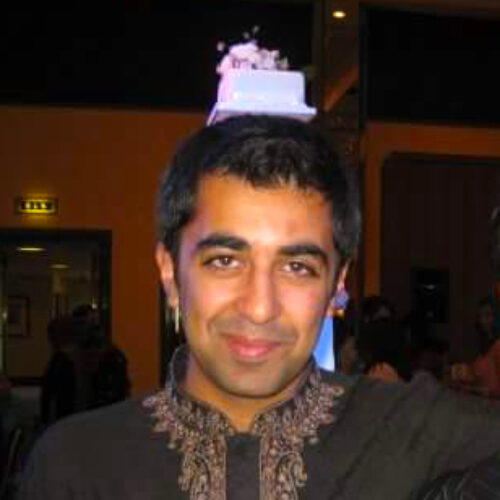Hamish Gobson’s diary: the view from across the Uisge
24 February 2023
I HAVE decided to decline the invitation to King Humza’s Coronation in May, despite having been offered a seat in the Murroyell Box. Wokery is a mysterious disease, and the best defence is social distance. With Covid, the recommendation was two metres; with wokery it is a hundred statute miles, or ten country miles. The isle of Great Todday is about as well insulated against politicians as it is possible to be in a country with an over-financed parliament whose members imagine the country is interested in their views. I don’t want to change that.
Nonetheless, I will be following the festivities in Edinburgh with close interest from at least one point of view. This was provoked by re-reading David Torrance’s book about the independence referendum in 2014 (100 Days of Hope and Fear – recommended). On Monday 25 August, Torrance was sitting in the “spin room” (his term) at the BBC headquarters in Kelvingrove, Glasgow while pretendy politicians prowled around posing and posturing. These included Douglas Alexander and Humza Yousaf himself, plus a scattering of professional by-standers, like Katie Grant and the all-seeing, all-wise Iain Macwhirter. Torrance was waiting to be called into the studio to comment about something on a programme called Reporting Scotland when Yousaf swept past him at close quarters and said: “Hair’s looking great!”
What sort of politician says such things to journalists he is not intimate with? Torrance clearly takes some trouble over his hair (lots of barbers in the book), but is Yousaf really a student of male hair, or was he selling something? Or might this have been an example of damning with faint praise in that he conspicuously ignored the man beneath the hair, rather in the way that journalists writing about Alistair Darling at that time used to concentrate on the eyebrows and ignore the head that contextualised them. Might this, in other words, have been a “hair crime”?
Your guess is as good as Vidal Sassoon’s, but mine is that Yousaf’s remark was not intended to hurt the feelings of the hair wearer. Believing as I am sure he does in “equal hair”, the future Minister of Justice of Pre-Separation Scotland could as well have addressed his remark to Boris Johnson, who appears to have too much hair for the capacity of his comb, or to John Swinney, who has no hair at all above skin level. I am sure Yousaf’s remark was completely impersonal as he, like everyone in public life in Scotland today, is more interested in politics than personalities.
Curiously though, Sections 4 and 9 of the Hate Crime and Public Order (Scotland) Act, which Yousaf piloted through parliament after this incident, contain lists of subjects which he wanted to suppress discussion of. They mostly concern gender or race, and nowhere do they mention hair. Could there be a connection between his interest in the subject and its absence from the list of subjects we are not allowed to discuss?
I believe in “equal truth” and therefore I see no difference between Yousaf’s truth and that of the Todday Cailleach who reads the tea-leaves for the island. Her prediction is that, within six months of King Humza’s ascent to the throne of our ancestors, we will have no police in Scotland. Every single one will have taken early retirement, as the current Chief Constable has just announced he intends to do. The whole force will take a leaf out of Sir Iain Livingstone’s tea and resign before the Cailleach can read it.
The rate of resignations from the force is already such that, at the current rate of attrition, it will be reduced within a decade from the present 23,000 to a dozen constables, a duty sergeant, and thirty-five Health and Safety Compliance Officers. The Cailleach’s prediction implies the exodus will take less than a year. The main reason for this is the Hate Crime Act.
Civilised police have always been reluctant to burst into the homes of ordinary families and arrest people for raising the wrong subjects over the dinner table. The subject of concern might simply be something which Dad is bored of, like cross-dressing, while the awkward teenager in the home decides to teach his father a lesson by reporting him to the police for committing a hate crime. As Sir Iain has said, the police have enough to do investigating political corruption without having to get involved in family disputes as well.
Vidal Sassoon is relevant here in another way because his family, like so many other Ashkenazi Jews, came from Ukraine where they experienced hate crimes on a scale that a young whipper-snapper like Yousaf could hardly dream of. The perpetrators of the Ukrainian pogroms of the late tsarist period, which is what drove the Sassoons to move to London, were mostly proto-fascist Russian nationalists like the Black Hundreds. It is people of their stripe who are now in control of the Kremlin, which provokes the question of whether the author of the Scottish Hate Crime Act (a Muslim) has been conspicuous in his support for Jewish causes?
I have not studied Mr Yousaf’s parliamentary record in full but I do know that he did not speak in Christine Grahame’s debate on the Holodomor on 20 March 2018, nor in the Holocaust debate on 24 January 2019. Yet he summed up for the SNP in a debate on 10 June 2020 about “Showing Solidarity with Anti-Racism”. This was the famous occasion on which he criticised senior Scots for being “white”. You can see his remarkable performance at the beginning of this film about the Hate Crime Bill.
The film goes on to make the point that if everyday behaviour is criminalised, then everyone will be guilty of something. That is the great opportunity for which authoritarians wait and pray as it enables selective policing, which is the favourite tool of tyrants everywhere. You are in a position to arrest anyone, but you choose only those who you want to see suffer. That is the way the justice system works in Putin’s Russia today, and how it did at the time of the Beilis case in Kiev in 1913.
However, Menachim Beilis was acquitted of ritual murder of Christian children by a Ukrainian jury, and lived an undisturbed life afterwards in Saratoga Springs, NY. The Tsar, Nicholas II, was left red-faced in a way that King Humza would find deeply uncomfortable. Perhaps this explains why the Scottish government is so suspicious of juries. But it certainly explains, to me anyway, why Sir Iain Livingstone and his force do not appear keen to get involved in the application of the Hate Crime Act.
If I were to attend the Coronation, I would feel compelled to ask the new King to lift his crown so I could look underneath and say, “Hair’s looking great!” I might even stroke the holy hair and pour a few drops of frankincense and myrrh on it an outward and visible sign of inward and spiritual adoration. The great man would smile gratefully and invite me back to Bute House for a chicken tikka masala intifada.
Now, I love my chicken tikka masala intifada as much as the next man, but I think eating one in the company of a man who takes an interest in other men’s hair would be gilding more lilies than Solomon (a Jew) in all his glory managed to gild when he was Minister of Justice of Pre-Reformation Palestine.
–––
Hamish Gobson lives on the isle of Great Todday (Todaidh Mór) and features in Hating Tories: How Nicola Sturgeon Got into Government (1970-2007) – A Citizen’s Biography of a Driven Woman in a Drifting Parliament (Ian Mitchell, 2023) – available on Amazon.co.uk and also reviewed here by Tom Gallagher.
If you appreciated this article please share and follow us on Twitter here – and like and comment on facebook here. Help support ThinkScotland publishing these articles by making a donation here.
Photo of Humza Yousaf sans beard








